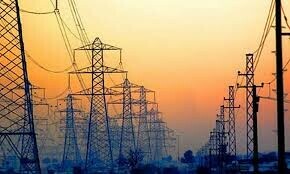Though still facing a fragile stability, Finance Minister Ishaq Dar says the ‘primary’ aim of the next federal budget will be ‘ higher, sustainable and inclusive growth.’ This is a shift from the previous PML-N focus on ‘growth with stability’.
Historical record shows that spurts of growth cannot be sustained with cyclical downturns turning more frequent and austerity policies taking precedence over ones that can push economic growth. However, it is now more widely recognised that sustainability of higher growth lies in inclusiveness.
Rooting out poverty offers an immense opportunity for economic progress unlike over concentration of capital and wealth in a few hands which is a sure recipe for an economy’s slowdown or recession.
International trade is growing at a slower pace than global economic expansion and local businesses are diversifying to cater to the domestic market, particularly to serve a growing and relatively affluent middle class — helped by huge remittances from overseas workers to their families at home.
Domestic demand is also picking up because of local production and supply of innovative products, increasing bank consumer financing and CPEC-related investments.
“The government will accord top priority to well being of the people in the budget for 2017-18,” says Ishaq Dar.
“The government will accord top priority to the people’s well being in the 2017-18 budget”, says Ishaq Dar
So far such policy statements have carried little creditability in public perception but these observations have now assumed some relevance in the context of the coming general elections since the federal government — burdened with high debt servicing costs and defence spending — has little to show for its performance on public welfare.
Well-entrenched policies can be questioned at the ballot box as seen in the case of Brexit and the electoral verdict in the last US polls. The two events point to a coming change: an effective say of the common citizen in a transforming world.
Though the situation in Pakistan is different from that of the US and the UK, it cannot totally escape the emerging international trend. The government needs to not only stay focused on improving its standing with the international lending and credit agencies but it also needs to build bridges with many of the country’s frustrated common citizens.
Of course PML-N’s electoral victory, in the most populated province, in the next polls would be dependent more on the Punjab chief minister’s performance (after the recent financial, legislative and administrative devolution) than what Mr Dar can deliver.
The PML-N’s best contribution would be to normalise the country’s relations with neighbouring states so that national security spending can be reduced and social and economic uplift can be undertaken in areas cleared of militants. Mainstreaming Fata and its merger with the KP are steps in the right direction.
Setting aside the political relevance of Mr Dar’s statement, and taking it as a strategy — in blending together the three elements of growth ( inclusive, higher and sustainable) — to produce an overall economic and social progress does deserve to be treated on its own merit.
‘Pakistan Vision 2025’ puts developing human and social capital as the ‘first pillar’ of development to build ‘a society based on ‘fairness and equity’... by ‘reducing the incidence of poverty and income distribution gaps’. However, “the main hurdle in implementing such a vision is that it has to be a shared one,” says the State Bank annual report for FY2016.
The first Multi-dimensional Poverty Index — that measures non-income based poverty — classified 38pc of the country’s population as ‘multi-dimensional poor’ that , according to the SBP report, requires ‘multiple policies’, including revamping weak institutions and national ownership of Vision 2025.
While conceding that much of the social sector now lies in the domain of the not so well governed provinces and that sustained higher economic growth is not within easy grasp of policymakers, the record of pro-poor budget spending is dismal.
According to central bank data, pro-poor spending has dropped from a five-year high of 9.7pc of GDP in FY2012 to 7.9pc in 2015 and slumped to 3.8pc in FY2016.
Last year, the pro-poor budget financed community services, human development, safety nets and included administration of justice and law and order. There has been zero spending for low cost housing since 2012 and rural development in FY2016.
The spending on education and health — so vital for improving labour productivity — has been cut from 3.6pc in FY2015 to 2pc in the following year. The positive side of the picture is that unemployment has dropped from 6pc on YoY to 5.9pc during this period.
Inequities embedded in the system retard progress and upset the social cohesion as can be witnessed in the country today.
The elimination of poverty among the poorest of the poor and widening household and regional disparities constitute an over-arching issue that deserves a place in mainstream economic activity. It should not be left to be resolved by the trickle-down effect of growth.
The role of the state should be to build a vibrant and stable middle class economy.
Published in Dawn, Economic & Business, March 13th, 2017












































